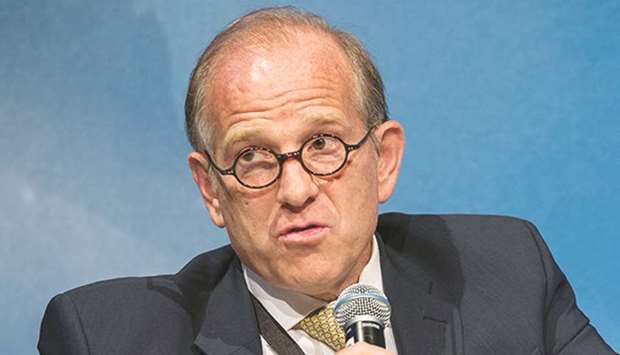The passenger became “disruptive”, violating the air safety rules and had to be arrested as the plane turned back and landed in Hong Kong.
In November, 2015, an “unruly” passenger was restrained during a British Airways flight from London to Boston’s Logan International Airport.
The passenger, a woman, was reportedly drunk and tried to forcibly open the aircraft’s exit door. She too was arrested and charged with bad behaviour and for interfering with the flight crew.
A month later, an India-bound Air Canada flight had to be diverted back to Toronto due to an incident involving a “disruptive passenger”. About two-and-a-half hours into the flight, the passenger reportedly bit the finger of a male attendant, following which the plane had to be turned around.
Last year, a member of India’s parliament hit an airline officer with his footwear, allegedly because he was refused a business class seat. The highly reprehensible incident has sparked off demands in India to put such unruly passengers on a permanent “no-fly” list.
Obviously, unruly passengers are a continuing concern for air carriers worldwide. While serious disruptive behaviour remains rare, it can be costly and cause aircraft delays.
Between 2007 and 2016, more than 58,000 unruly passenger incidents were reported on aircraft in-flight, data available with the International Air Transport Association show.
These incidents include violence against crew and other passengers, harassment and failure to follow safety instructions.
Unruly behaviour threatens passenger safety, disrupt other passengers and crew, causing unnecessary aircraft delays and diversions, IATA says.
The majority of incidents involved verbal abuse, failure to follow lawful crew instructions and other forms of anti-social behaviour, industry experts say.
A significant proportion of reports indicated physical aggression towards passengers or crew or damage to the aircraft. Alcohol or drug intoxication was identified as a factor in some cases, though in the vast majority of instances these were consumed prior to boarding or from personal supply without knowledge of the crew.
But due to loopholes in existing laws, many such offences often remain unpunished and culprits go scot-free.
In some countries, there has been a focus on the role of alcohol as a trigger for disruptive behaviour. Airlines already have strong guidelines and crew training on the responsible provision of alcohol.
For example, IATA is supporting initiatives, such as the code of practice pioneered in the UK, which includes a focus on prevention of intoxication and excessive drinking prior to boarding.
Evidence from an initiative by the now-defunct Monarch Airlines at London’s Gatwick Airport has shown instances of disruptive behaviour can be cut 50% with this pro-active approach before passengers’ board.
The industry believes that adopting this cooperative voluntary approach is preferable to heavy-handed regulation and licensing.
Studies have also revealed that some passengers get drunk obsessively in airport bars. For this reason, staff in airport bars and duty-free shops and pub operators must be trained to serve alcohol responsibly and there is a need to avoid offers that encourage so-called ‘binge drinking’.
Passengers need to be reminded to fly responsibly. The party should be at the destination and not on the plane.
In a first-of-its-kind initiative to bring the main aviation industry partners together to raise awareness of the need to fly responsibly, the ‘One Too Many’ campaign was launched in the UK in July this year.
It reminds passengers of the costs of drinking to excess when travelling by air.
These include the risks of being denied boarding, having a plane diverted and the associated costs which include heavy fines, up to two years’ prison, an airline ban and a diversion fee up to £80,000 for the most serious in-flight incidents.
Disruptive passengers have the potential to ruin other people’s flights, and therefore, the ‘One Too Many’ campaign is an important new step to ensure all passengers are aware of the consequences they face if they behave disruptively after drinking before or on board a flight.
According to Rafael Schvartzman, regional vice-president (Europe) IATA, “While we should remember that disruptive passenger incidents are still relatively rare, they rank in the top-three concerns of cabin crew, and any incident is one too many. Airlines have a zero-tolerance approach to unruly behaviour and cabin crew and passengers have a right to a flight free from disturbance and harassment.”
Safety and security are considered the airline industry’s top priorities. However, disruptive passengers have, over the past several years, become more prevalent and unruly passenger incidents are currently a very real and serious threat to both safety and security.
The anti-social behaviour of a tiny minority of customers can have unpleasant consequences for the safety and comfort of all on board.
Therefore, it is time to effectively address the issue of unruly passengers. International legal framework must be strengthened to ensure that governments have the necessary legal tools to be able to take action against the small minority of passengers who are unruly.
Pratap John is Business Editor and Chief Business Reporter at Gulf Times.


